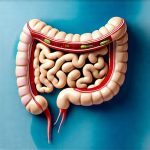The pursuit of optimal health often leads individuals down paths of meticulous dietary control – carefully tracking macros, eliminating perceived ‘bad’ foods, and rigidly adhering to specific eating patterns. This dedication is admirable, but it can sometimes backfire, paradoxically resulting in digestive issues like constipation. Many assume constipation stems from lack of something—fiber, fluids, or physical activity—but a surprisingly common trigger is actually too much discipline, especially when dietary changes are abrupt or overly restrictive. This article explores the nuanced relationship between stringent diets and constipation onset , delving into the physiological reasons why this occurs and offering strategies for restoring healthy bowel function without abandoning mindful eating altogether.
The human digestive system is remarkably adaptable, but it thrives on balance and consistency. Sudden shifts in diet, even those intended to be ‘healthy’, can disrupt this delicate ecosystem. When we dramatically alter our intake – reducing fiber too quickly, eliminating entire food groups, or drastically increasing certain nutrients – the gut’s microbiome (the community of bacteria residing within us) can become imbalanced. This imbalance, along with changes in motility (the movement of food through the digestive tract), can lead to constipation. It’s not necessarily about what you remove from your diet, but rather how quickly and completely you do it. Furthermore, a hyper-focus on ‘clean eating’ or restrictive diets can create anxiety around food, impacting digestion even subconsciously. This is because stress significantly influences the gut-brain axis – the bidirectional communication system between our digestive tract and brain. If dietary changes lead to issues, consider how to reset the gut after periods of restriction.
The Physiology of Constipation After Dietary Restriction
Constipation isn’t merely about infrequent bowel movements; it’s a complex physiological process influenced by multiple factors. When dietary discipline becomes overly strict, several key mechanisms can contribute to its onset. One primary issue is the rapid reduction in fiber intake – or, more precisely, a shift in types of fiber. Many restrictive diets prioritize low-carb approaches, which often involve cutting back on fruits, whole grains, and legumes—all excellent sources of fiber. Fiber isn’t just ‘roughage’; it adds bulk to stool, softening it and making it easier to pass. It also feeds beneficial gut bacteria, promoting a healthy microbiome that aids digestion. A sudden decrease in fiber can lead to harder stools requiring more effort to eliminate.
Another crucial factor is hydration. Restrictive diets sometimes inadvertently reduce fluid intake, either because they limit water-rich foods (like fruits and vegetables) or because individuals are focused on calorie restriction and may not prioritize drinking enough water. Dehydration hardens stool, exacerbating constipation. Beyond fiber and fluids, the gut microbiome plays a critical role. A sudden dietary change can starve certain bacteria that thrive on specific food components, while allowing others to proliferate unchecked. This imbalance disrupts the fermentation process in the colon, altering gas production and potentially slowing down motility. Finally, peristalsis – the wave-like muscle contractions that move food through the digestive tract – can be affected by stress associated with restrictive eating, further contributing to constipation. It’s important to consider if you have experienced digestive confusion due to diet changes as well.
It’s important to recognize that this isn’t just about extreme diets like juice cleanses or elimination protocols. Even seemingly ‘healthy’ dietary changes, such as switching to a very low-carb keto diet without adequate planning for fiber and hydration, can trigger constipation in susceptible individuals. The body needs time to adapt; abrupt transitions are almost always more problematic than gradual ones. Constipation after family gatherings is also a common issue that highlights the stress component of digestion.
Reintroducing Digestive Harmony
The good news is that constipation triggered by excessive dietary discipline is often reversible. The key lies in a mindful reintroduction of foods and a focus on restoring digestive balance. This isn’t about abandoning healthy eating principles, but rather refining them to be more sustainable and gut-friendly. A gradual approach is paramount; attempting to ‘fix’ the problem with drastic measures can only worsen it.
First, prioritize hydration. Aim for at least eight glasses of water per day, and increase intake if you are physically active or live in a hot climate. Next, slowly reintroduce fiber-rich foods. Don’t simply add large quantities overnight; start with small portions and gradually increase the amount over several days or weeks. Focus on both soluble fiber (found in oats, beans, apples) which absorbs water and softens stool, and insoluble fiber (found in whole grains, vegetables) which adds bulk. Consider incorporating fermented foods like yogurt, kefir, sauerkraut, or kimchi into your diet to support a healthy gut microbiome. These contain probiotics – live bacteria that can help repopulate the gut with beneficial strains.
Addressing Dietary Rigidity and Anxiety
A significant component of resolving constipation in this context involves addressing the underlying psychological factors related to dietary restriction. Often, individuals who engage in extremely disciplined eating habits experience anxiety around food, fearing ‘slip-ups’ or believing certain foods are inherently ‘bad’. This constant worry can trigger stress hormones that negatively impact digestion.
- Mindful Eating Practices: Cultivate mindful eating by paying attention to hunger and fullness cues, savoring each bite, and avoiding distractions during meals.
- Challenge Restrictive Beliefs: Question the rigidity of your dietary rules. Are they truly necessary for health, or are they creating unnecessary stress?
- Seek Support: Consider talking to a registered dietitian or therapist specializing in disordered eating if you struggle with anxiety around food or restrictive behaviors.
The Role of Movement and Stress Management
Constipation is often exacerbated by a sedentary lifestyle and high levels of stress. Regular physical activity stimulates gut motility, helping to move food through the digestive tract more efficiently. Aim for at least 30 minutes of moderate-intensity exercise most days of the week. This could include walking, jogging, swimming, or cycling.
- Stress Reduction Techniques: Incorporate stress management techniques into your daily routine. These might include yoga, meditation, deep breathing exercises, spending time in nature, or engaging in hobbies you enjoy.
- Gut-Brain Connection Awareness: Understand that the gut and brain are intimately connected, and managing stress is crucial for digestive health.
Gradual Reintroduction and Monitoring
Reintroducing foods should be a slow and deliberate process, carefully monitoring your body’s response. Start with small portions of previously eliminated foods and observe how you feel. If constipation worsens or other symptoms arise, reduce the amount or temporarily pause reintroduction. Keep a food diary to track what you eat, when you experience symptoms, and any potential triggers. This can help identify sensitivities or intolerances that may be contributing to your digestive issues.
- Start with Low-FODMAP Foods: If bloating or gas are also present, consider starting with low-FODMAP foods during reintroduction, gradually expanding the variety as tolerated.
- Listen to Your Body: Pay close attention to how different foods affect you individually – everyone is unique!
- Seek Professional Guidance: If constipation persists despite these efforts, consult a healthcare professional to rule out underlying medical conditions and receive personalized recommendations. If changes in diet cause loose stools, it is important to understand the causes as well.
Ultimately, achieving digestive harmony isn’t about adhering to the most restrictive diet; it’s about finding a sustainable balance between healthy eating habits and mindful self-care – one that nourishes both your body and your mind.


















